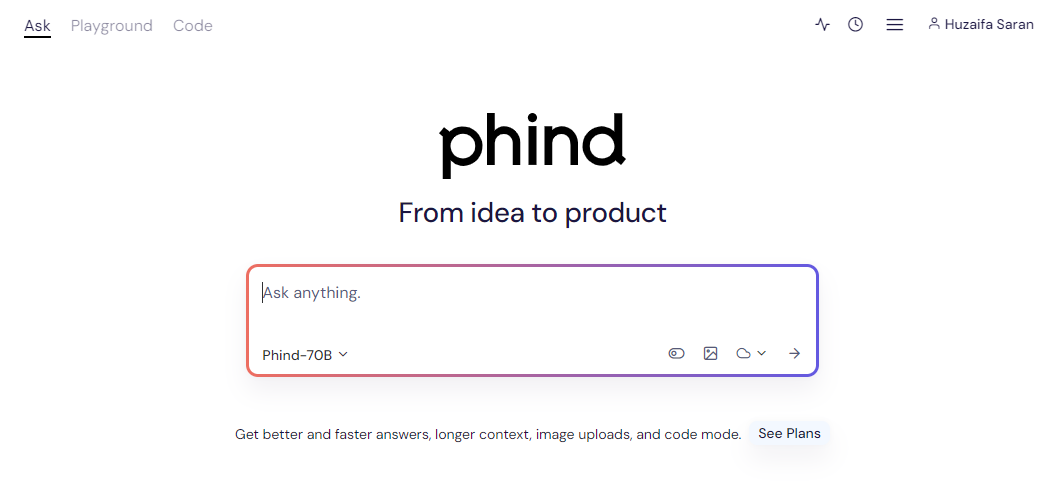Phind: The AI Search Engine That Speaks Your Code
 Huzaifa Saran
Huzaifa Saran
Imagine this: you're deep in the trenches of coding, surrounded by a sea of tabs and snippets, desperately searching for a solution to a perplexing bug. You've exhausted Google, Stack Overflow, and the forums, yet the answer remains elusive. Enter Phind, a specialized AI search engine designed exclusively for developers like you. It's not just another search engine; it's your AI-powered dev sidekick, capable of understanding your code and providing tailored solutions.
The Birth of Phind
Phind was born out of the frustration of developers facing the overwhelming vastness of the internet. While there's a wealth of valuable information out there, finding the precise answers you need can feel like searching for a needle in a haystack. Traditional search engines, designed for a general audience, often fall short when it comes to providing the technical expertise developers require.
Recognizing this gap, the team behind Phind set out to create an AI-powered search engine that speaks the language of developers. Whether you're debugging JavaScript or delving into complex machine learning algorithms, Phind delivers relevant results tailored to your specific needs.
Why Phind Stands Out?
What sets Phind apart from other search engines? Here's why it might just become your go-to tool:
Contextual Understanding: Phind doesn't just search for keywords; it understands the context of your query. Ask it a question about a specific Python error, and you'll receive explanations, code snippets, and relevant discussions, all tailored to your specific context.
Clean and Focused Interface: Phind's interface is designed to be clean and minimalistic, eliminating distractions and keeping you focused on the task at hand. No ads, no fluff—just the information you need.
Developer-Centric Features: Phind integrates with popular developer tools and platforms, making it more than just a search engine. It's a valuable resource for finding, experimenting with, and implementing solutions directly within your workflow.
How Phind Works?
At its core, Phind is powered by cutting-edge natural language processing (NLP) models that understand the nuances of technical queries. Unlike general search engines that prioritize popularity, Phind prioritizes relevance to the developer community. It sources results from trusted sources like GitHub, Stack Overflow, and tech blogs.
When you enter a query, Phind's AI analyzes it, understands your intent, and retrieves the most pertinent information. It's like having a seasoned developer by your side, guiding you through the problem-solving process.
The Community Factor
Phind isn't just about AI; it's about community. As more developers use Phind and contribute feedback, it becomes smarter and better equipped to meet the evolving needs of the developer community. This collaborative approach ensures that Phind stays up-to-date with the latest trends, frameworks, and best practices.
When to Use Phind?
Phind excels when you need precise answers quickly. Here are some scenarios where it can be particularly helpful:
Debugging: Stuck on a bug? Phind can help you identify the root cause and provide tailored solutions.
Learning: Exploring a new language or framework? Phind surfaces the best resources, tutorials, and documentation to help you get started.
Project Development: Whether you're building a side project or deploying to production, Phind's focused search results can streamline your development process.
Quick last words
In a world where information overload is the norm, Phind offers a refreshing solution. It's an AI-powered search engine designed specifically for developers, providing contextual, relevant, and actionable information when you need it most. So, the next time you're grappling with a coding challenge, give Phind a try. It's not just a search engine; it's your new dev sidekick.
Subscribe to my newsletter
Read articles from Huzaifa Saran directly inside your inbox. Subscribe to the newsletter, and don't miss out.
Written by

Huzaifa Saran
Huzaifa Saran
Django full stack developer and Emerging software engineer